- Учителю
- Конспект урока английского языка на тему 'Do you Prefer Books or Films?' (9 класс)
Конспект урока английского языка на тему 'Do you Prefer Books or Films?' (9 класс)
Министерство образования Республики Башкортостан
Государственное бюджетное общеобразовательное учреждение
«Республиканский политехнический лицей-интернат»
Гузель Ирековна Гущина
Do you Prefer Books or Films?
Методическая разработка урока английского языка
в 9 классе по учебнику В.П. Кузовлева
Кумертау 2015
Тема урока: "Do you prefer books or films?"
Цель урока: совершенствование иноязычной речевой, лингвистической и социокультурной компетенций обучающихся по теме «Досуг, увлечения: чтение».
Задачи урока:
- Образовательный аспект (предметные результаты): совершенствование навыков монологической и диалогической устной речи; совершенствование грамматических навыков (повторение грамматического явления "Reported Speech: 'that' clauses") речи; развитие умения читать/понимать на слух с целью полного понимания и извлечения конкретной информации.
- Развивающий аспект (метапредметные результаты): формирование умения выделять главное, сравнивать и анализировать; развитие способностей оценивать чужое мнение, формулировать выводы, развитие способности к объяснению, выстраиванию последовательности высказываний.
- Воспитательный аспект (метапредметные результаты): воспитание чувства ответственности за совместную работу, формирование умения устанавливать рабочие отношения, эффективно сотрудничать с участниками общения в условиях групповой деятельности; формирование положительной мотивации к изучению литературы своей страны и зарубежной литературы; воспитание активности в решении коммуникативных задач.
- Социокультурный аспект (метапредметные результаты): знакомство с отношением британских детей к чтению и просмотру фильмов, снятых по известным произведениям; с известными фильмами мирового кинематографа, созданным по произведениям
русской и зарубежной литературы; знакомство с реалиями и фактами иноязычной культуры.
Тип урока: систематизации и обобщения знаний
Применяемые технологии.
- развитие познавательных интересов;
- личностно-ориентированное обучение;
- информационно-коммуникативные технологии;
- метод кейсов.
Оснащение урока: мультимедийное оборудование (проектор, интерактивная доска, наличие электронной связи с выходом в сеть Интернет, поддержка файлов формата PDF), раздаточный материал (тексты коммуникативных упражнений с изображениями фильмов, снятых по произведениям мировой литературы), учебник, рабочая тетрадь.
ХОД УРОКА
1. Организационный момент (ознакомление обучающихся с темой и целью урока).
Teacher: Good morning, dear friends! Today, we will continue discussing leisure time spending options. I hope you remember that reading is one of the most preferable hobbies for many people. But, have you heard the following proverbs?:
-
If your books are not read, your descendants will be ignorant (Chinese proverb)
-
A picture is worth a thousand words, and yet picture books are for infants (English proverb).
Do you agree with them?
Now, I think you have guessed that today we are going to learn to make choice between different past-time activities, like reading books or watching films for example. There are some persons who prefer watching films based on some very popular books instead of reading them on their own. And what about you? Do you prefer reading books or watching films? Let's find it out together.
2. Фонетическая разминка.
Осуществляется фонетическая отработка продуктивного лексического материала текущего и предыдущих уроков (см. приложение 1):
Literary(Movie) Genres
Fantasy fiction, adventure, humour, horror (thriller), crime (detective), romance, science fiction, historical, epic
Stating your opinion
I'm sure ..., Definitely ...,
I think ...
Giving arguments or reasons
For example ..., The reason is ...
Saying
you agree:
It's true that ..., I don't think anyone could disagree ...
Saying
you disagree:
I don't think that ..., I'm afraid I can't agree ...
Saying you partly
agree
Yes, maybe, but ..., I'm not sure if ...
Stating opposing opinion
But ..., On the other hand ...; Don't forget that…
Conclusions
In conclusion ..., On the whole ...
3. Выполнение коммуникативного упражнения, направленного на развитие умения читать с целью извлечения конкретной информации (п.п. 1.1 и 1.2, с.24-25 [1]).
При выполнении упражнения актуализируются грамматические навыки речи. Перед выполнением задания учащимся следует напомнить о необходимости использования такого грамматического явления, как «косвенная речь» (Reported structures: 'that'-clauses).
3.1 Учитель представляет некоторые сведения, касающиеся правил образования конструкций в косвенной речи в английском языке:
Прямая и косвенная речь
Чье-либо высказывание может быть либо передано так, как оно было произнесено (прямая речь), либо описано с помощью сложноподчинённого предложения с дополнительным придаточным (косвенная речь). Для выражения высказанной речи применяются глаголы to say (said) - говорить, сказать; to tell (told) smb. - сказать кому-либо; to ask -спрашивать, просить.
Пример употребления прямой речи:
-
He said to me,"If you like, I'll fetch you some water."
Он сказал мне: «Если хочешь, я принесу тебе воды».
При изменении прямой речи в косвенную соблюдаются следующие правила:
Запятая и кавычки опускаются, все личные и притяжательные местоимения изменяются в зависимости от лица, от которого ведется речь. (1л. на 3л., 2л. на 1,3л.). Сравните:
-
Пример 1
Прямая речь
He says, "We'll have to take a taxi".
Косвенная речь
He says (that) we'll have to take a taxi.
Он говорит: «Нам придется взять такси».
Он говорит, что нам придется взять такси.
Данная информация может быть представлена учащимся в формате раздаточного материала (см. приложение 2) с дополнительной демонстрацией на слайде презентации к уроку.
3.2 Работа в группах.
Teacher: Now I want you to divide into three groups of 4-5 students and find out how each speaker:
-
introduces the problem;
-
states his/her opinion;
-
gives arguments or reasons;
-
agrees or disagrees;
-
makes a conclusion.
Each group is responsible for a certain speaker. There are four of them: teacher, Dylan, Sean, Lisa. Mind that you've got to use reported structures with 'that'-clauses. See the model on page 24.
Учащиеся читают высказывания британских ребят и их учителя и по очереди отвечают на вопросы, трансформируя прямую
речь в косвенную.
Пример высказываний:
Group 1: Dylan prefers reading. He thinks that books are much better than
films, and there are more books with fantastic plots and well-developed
characters than films. He says that you can take books anywhere and
read them any time you want. He adds that most films miss half the story while books tell the whole story and you can use your imagination, not like with films where you can only see it!
3.3 Выводится общее мнение, дающее ответ на вопрос "Do you prefer books or films?": п.1.3), с. 25.
4. Разбор ситуации (актуализация технологии case-study).
Учащиеся снова работают в группах. Им предлагается решить коммуникативную задачу в следующей ситуации:
Кто-то из ребят празднует свой день рождения, и в качестве развлечения было решено посмотреть какой-нибудь фильм, основанный на известном произведении. Для этого ребятам следует сделать выбор из трех предложенных фильмов.
Учащимся предлагаются картинки с информацией о жанре, создателях, актерах, сценарии и т. д. фильмов, из которых они должны сделать выбор для просмотра на дне рождения одного из членов группы. При этом они должны аргументировать свои высказывания, предлагая тот или иной фильм, выражать несогласие/частичное согласие, делать выводы. При построении высказываний учащимся следует пользоваться опорными выражениями, которые были представлены в начале урока на этапе фонетической отработки. Их можно распечатать в виде раздаточного материала (см. приложение 3) или представить на слайде в презентации к уроку.
Teacher: You are a going to celebrate a birthday party of one of your friends, let us call that person who invited you David or Helen. As an entertainment you are going to watch a video of some very popular film based on a book. But before doing that you have got to make a choice out of the three films offered to you as options. Be ready to give your arguments and reasons suggesting one or another variant. At the end you should come to an agreement choosing only one film.
Для решения задачи каждой группе отводится время в объеме 5-7 минут. По истечении времени задания каждая группа разыгрывает заданную коммуникативную ситуацию.
Пример развития ситуации:
St1: As for me I would offer to watch "The Host". Actually this will be the best option because you can enjoy the genres of romance, science fiction and thriller in one film. Besides it's a modern film unlike the 1968 Romeo and Juliet and the 1967 War and Peace.
St2: It's true that "The Host" is a modern film and definitely all young people today are crazy about 's s of Bella and Edward from the Twilight Saga, so I think that a new film based on the book of that author will be interesting to see.
St3: But I am not sure if everyone is fond of science fiction and thriller films. On the other hand, there is hardly any practical value of seeing another fantasy story. I'm sure we should see one of the other two films which are based on classical literary masterpieces.
St4: I don't think it's a good idea to see "War and Peace" because it's a series and we can't see the whole story tell the end.
St:1 Yes, you are right. And what about watching "Romeo and Juliet" then? It was made by the very famous director .
St2: It's a very beautiful story really. So I think we could see it.
St3, St4: We don't mind watching this film either.
После прослушивания выступлений всех групп подводятся итоги решения коммуникативной задачи, делается общий вывод.
Teacher: As you can see the most decisive factors in choosing a film to see are as follows:
-
the genre of a film (literary work);
-
popularity of the story described in the film among the teenagers:
-
the length of the film;
-
practical value of the film; e.t.c.
5. Домашнее задание.
Письменно выполняется упражнение 3, с. 25 [1], Activity book: ex.2, p.13-14 [3]; учащимся предлагается выбрать одну из книг, представленных на уроке для ознакомления с ее содержанием, сюжетом, главными героями, идеей и темой с целью написания по ней рецензии на одном из последующих уроков.
6. Подведение итогов урока. Этап рефлексии.
Учащимся предлагается выразить свое отношение к результатам деятельности на уроке. Для этого им предлагается продолжить фразы:
-
I have learnt today (сегодня я узнал, научился)….
-
It was interesting (было интересно…).
-
It was rather hard …, but I will try… (было довольно трудно…, но я постараюсь…).
-
I fulfilled the tasks in which I … (я выполнял задания, в которых я…).
-
Now I can … (теперь я могу…).
-
I acquired… (я приобрел…).
-
It was a great surprise to me that… (меня удивило…).
-
Now I want (мне захотелось…).
По итогам урока выставляются отметки: оценивается индивидуальная работа и взаимодействие учащихся внутри группы.
Teacher: My dear friends I hope that now you can easily answer the question: "Do you prefer books or films?" The tasks that you have solved today will help you to describe other people's words on some events and to assess the quality of fiction films analyzing such aspects as the genre, the plot, the actors' play e. t. c. More than that, I believe that most of you got interested in some stories we have discussed today and the following step you are going to do is to read them or see their screen version on your own. Great thanks to all of you! Good bye.
Литература
1. Английский язык. 9 класс: учеб.
для общеобразоват. учреждений с прил. На электронном носителе / [В. П. Кузовлев, Н. М. Лапа, Э. Ш. Перегудова и др.]; Рос. акад. наук, Рос. акад. образования, изд-во «Просвещение». - 17-е изд. - М.: Просвещение, 2012. - 271 с.
2. Английский язык. Книга для учителя. 9 класс: пособие
для общеобразоват. учреждений / [В. П. Кузовлев, Н. М. Лапа,
Э. Ш. Перегудова и др.]; Рос. акад. наук, Рос. акад. образования,
изд-во «Просвещение». - 6-е изд., перераб. - М.: Просвещение, 2010. - 270 с.
3. Английский язык. Рабочая тетрадь. 9 класс: пособие
для общеобразоват. учреждений / [В. П. Кузовлев, Н. М. Лапа,
Э. Ш. Перегудова и др.]; Рос. акад. наук, Рос. акад. образования,
изд-во «Просвещение». - 14-е изд., перераб. - М.: Просвещение, 2012. - 144 с.
4. Proverbs about books. - URL: .
Приложение 1. Лексический материал урока
Do you remember how these words and phrases are pronounced?
Literary(Movie) Genres
Fantasy fiction, adventure, humour, horror (thriller), crime (detective), romance, science fiction, historical, epic
Stating your opinion
I'm sure ..., Definitely ...,
I think ...
Giving arguments or reasons
For example ..., The reason is ...
Saying
you agree:
It's true that ..., I don't think anyone could disagree ...
Saying
you disagree:
I don't think that ..., I'm afraid I can't agree ...
Saying you partly
agree
Yes, maybe, but ..., I'm not sure if ...
Stating opposing opinion
But ..., On the other hand ...; Don't forget that…
Conclusions
In conclusion ..., On the whole ...
Приложение 2. Грамматический материал урока
Прямая и косвенная речь (Direct and Reported Speech)
Чье-либо высказывание может быть либо передано так, как оно было произнесено (прямая речь), либо описано с помощью сложноподчинённого предложения с дополнительным придаточным (косвенная речь). Для выражения высказанной речи применяются глаголы to say (said) - говорить, сказать; to tell (told) smb. - сказать кому-либо; to ask -спрашивать, просить.
Пример употребления прямой речи:
-
He said to me,"If you like, I'll fetch you some water."
Он сказал мне: «Если хочешь, я принесу тебе воды».
При изменении прямой речи в косвенную соблюдаются следующие правила:
Запятая и кавычки опускаются, все личные и притяжательные местоимения изменяются в зависимости от лица, от которого ведется речь. (1л. на 3л., 2л. на 1,3л.). Сравните:
-
Пример 1
Прямая речь
He says, "We'll have to take a taxi".
Косвенная речь
Он говорит: «Нам придется взять такси».
Он говорит, что нам придется взять такси.
Приложение 3. Коммуникативное задание по технологии кейс-стади
Case 1
You are a going to celebrate a birthday party of one of your friends, let us call that person who invited you David or Helen. As an entertainment you are going to watch a video of some very popular film based on a book. But before doing that you have got to make a choice out of the three films offered to you as options. Be ready to give your arguments and reasons suggesting one or another variant. At the end you should come to an agreement choosing only one film.
THE HOST
Book:
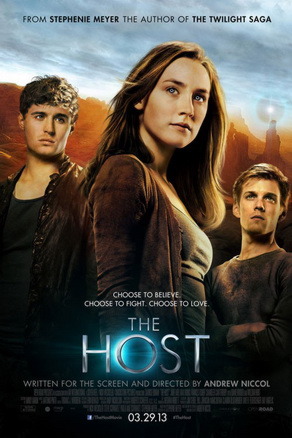
The Host is a 2013 American film from 's . It tells the story of a young woman, Melanie, who is captured after the human race has been taken over by parasitic aliens called "Souls". After Melanie is infused with a soul called "Wanderer", Melanie and the alien "Soul" vie for control of her body. Wanderer is asked by Seeker to access Melanie's memories in order to discover the location of a pocket of unassimilated humans. Surprisingly, Melanie's consciousness has not been eliminated, and it struggles for control of her body. Melanie and Wanderer carry out an internal conversation and debate with each other, forming something of a friendship. Written and directed by , the film stars , , , , and .
ROMEO AND JULIET
Book:
Romeo and Juliet is a 1968 British-Italian based on the tragic (1591-95) by .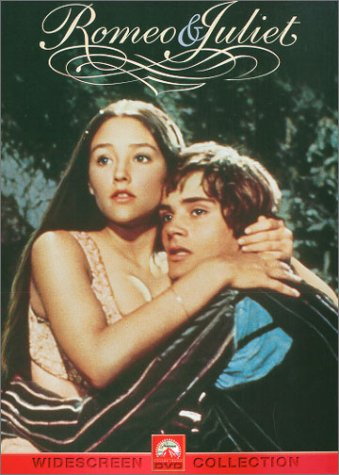
The film was directed and co-written by , and stars and . It won for () and (); it was also nominated for and , making it the last Shakespearean film to be nominated for Best Picture to date. Sir spoke the film's prologue and epilogue and reportedly dubbed the voice of the Italian actor playing Lord Montague, but was not credited in the film.
Being the most financially successful film adaptation of a Shakespeare play at the time of its release, it was popular among teenagers partly because it was the first film to use actors who were close to the age of the characters from the original play. Several critics also welcomed the film enthusiastically.
WAR AND PEACE
Book:
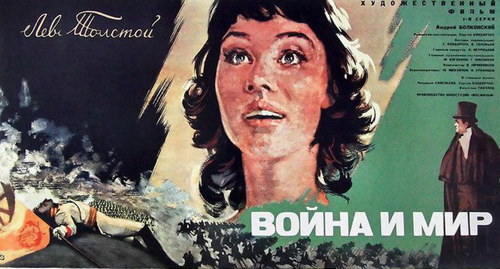
War and Peace (: Война́ и мир, Voyna i mir) is a Soviet historical epic and romance-drama of 's novel , released in four parts during 1966 and 1967. directed the series, co-wrote the script and starred in the leading role of , alongside and , who depicted Prince and .
The picture was produced by the studios between 1961 and 1967, with considerable support from the authorities. Upon its release, it became a success with the audiences, selling approximately 135 million tickets in its native country. War and Peace also won the Grand Prix in the , the and the .
Case 2
You are a going to celebrate a birthday party of one of your friends, let us call that person who invited you David or Helen. As an entertainment you are going to watch a video of some very popular film based on a book. But before doing that you have got to make a choice out of the three films offered to you as options. Be ready to give your arguments and reasons suggesting one or another variant. At the end you should come to an agreement choosing only one film.
HARRY POTTER AND THE HALF-BLOOD PRINCE
Book:
Harry Potter and the Half-Blood Prince is a 2009 directed by and distributed by . It is based on the by . The film, which is the sixth instalment in the , was written by and produced by and . The story follows 's sixth year at as he becomes obsessed with a mysterious textbook, falls in love, and attempts to retrieve a memory that holds the key to 's downfall.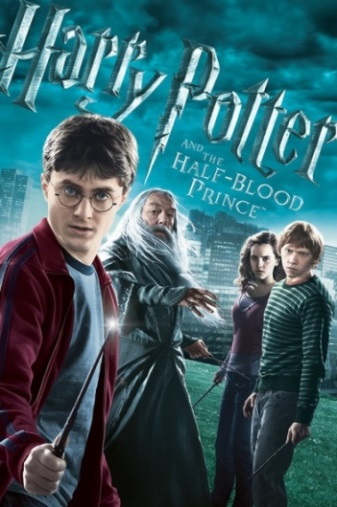
The film stars as Harry Potter, alongside and as Harry's best friends, and . It is the sequel to and is followed by .
JEAN EYRE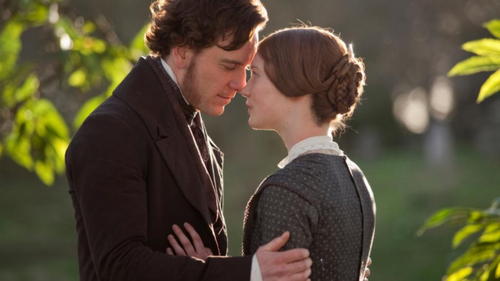
Book:
Mia Wasikowska and Michael Fassbender star in the romantic drama based on Charlotte Bronte's 19th Century classic novel, from acclaimed director Cary Fukunaga. In the story, Jane Eyre flees Thornfield House, where she works as a governess for wealthy Edward Rochester. As she reflects upon the people and emotions that have defined her, it is clear that the isolated and imposing residence - and Mr. Rochester's coldness - have sorely tested the young woman's resilience, forged years earlier when she was orphaned. She must now act decisively to secure her own future and come to terms with the past that haunts her - and the terrible secret that Mr. Rochester is hiding and that she has uncovered...
VIY (FORBIDDEN EMPIRE)
Book:
Viy 3D (: Вий, Internationally known as Forbidden Empire) is a 2014 film produced by Russian and Ukraine Film Group and Marins Group Entertainment and loosely based on the story . The film was released in cinemas in Russia, Ukraine and Azerbaijan on 30 January 2014, in the United States on 22 May 2015 and in the United Kingdom on 1 June 2015.The film is directed by Oleg Stepchenko, based on the first manuscript of Nikolai Gogol. 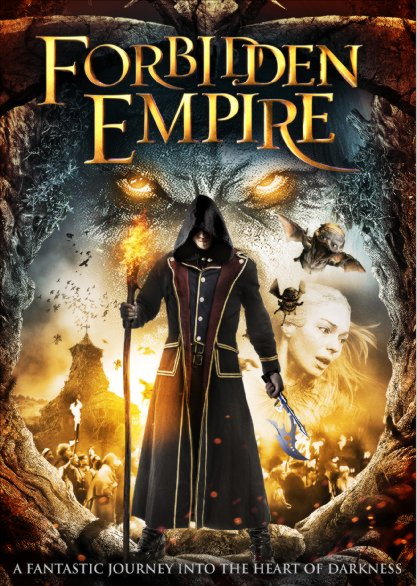
Early 18th century. Cartographer Jonathan Green undertakes a scientific voyage from Western to the East. Having passed through and crossed the , he finds himself in a small village lost in impassable woods of . Nothing but chance and heavy fog could bring him to this cursed place. People who live here do not resemble any other people which the traveler saw before that. The villagers, having dug a deep moat to fend them from the rest of the world, share a naive belief that they could save themselves from evil, failing to understand that evil has made its nest in their souls and is waiting for an opportunity to gush out upon the world.
Case 3
You are a going to celebrate a birthday party of one of your friends, let us call that person who invited you David or Helen. As an entertainment you are going to watch a video of some very popular film based on a book. But before doing that you have got to make a choice out of the three films offered to you as options. Be ready to give your arguments and reasons suggesting one or another variant. At the end you should come to an agreement choosing only one film.
GONE WITH THE WIND
book:
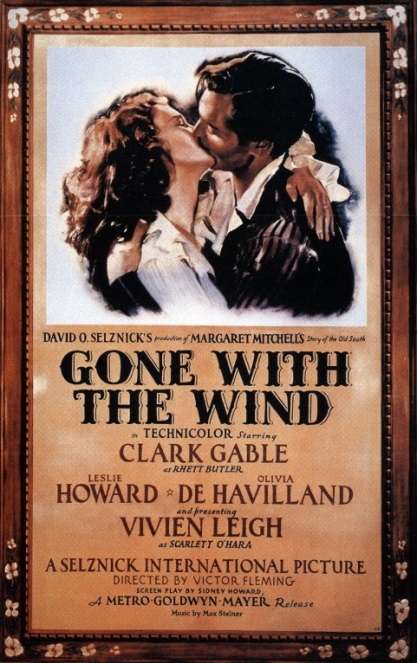
Gone with the Wind is a 1939 American film, a historical epic and romance- adapted from Margaret Mitchell's Pulitzer-winning 1936 novel of the same name. It was produced by David O. Selznick and directed by Victor Fleming from a screenplay by Sidney Howard. Set in the 19th-century American South, the film tells the story of , the strong-willed daughter of a Georgia plantation owner, from her romantic pursuit of , who is married to his cousin, , to her marriage to . Set against the backdrop of the and , the story is told from the perspective of white Southerners. The leading roles are portrayed by (Scarlett), (Rhett), (Ashley), and (Melanie).
MASTER AND MARGARITA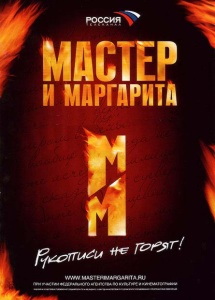
Book:
Master and Margarita (2005) is a Russian romance drama and thriller film based on the eponymous book by Mikhail A. Bulgakov. Set in Moscow under Stalin and in Jerusalem under Pilate, it has several story-lines where history, religion and politics are intertwined. The sacrifices of Master (Galibin), a talented author of a manuscript about the biblical Pontius Pilate, and Master's muse - Margarita (Kovalchuk), are paralleled by the biblical story of Ieshua in Ierushalaim, and the deceit of the cowardly ambiguous Pilate (Lavrov), whose character alludes to a Soviet leader. The reality is distorted by Satan Woland (Basilashvili), and his lieutenants, who are manipulating public events and people's lives by pushing the buttons of human weaknesses and sins. Margarita taps into Woland's power, trying to save Master. The character of Master is autobiographical, burning of his manuscript alludes to what Bulgakov himself did under threats from the Soviet authorities.
CHARLIE AND THE CHOCOLATE FACTORY
Book:
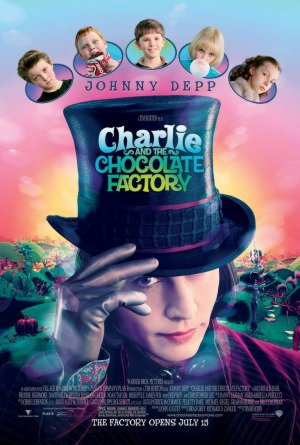
Charlie and the Chocolate Factory is a 2005 film directed by . It is the second of the 1964 British by and stars as and as . The storyline concerns Charlie, who takes a tour he has won, led by Wonka, through the most magnificent chocolate factory in the world.
Charlie Bucket is a kind and loving boy living in poverty with his parents and four bedridden grandparents. They all rely on his father for income, employed at a factory, responsible for putting the caps on the tubes. Down the street is 's chocolate factory, which reopened after forced him into seclusion and to his employees. Charlie's Grandpa Joe worked for Wonka before the termination.